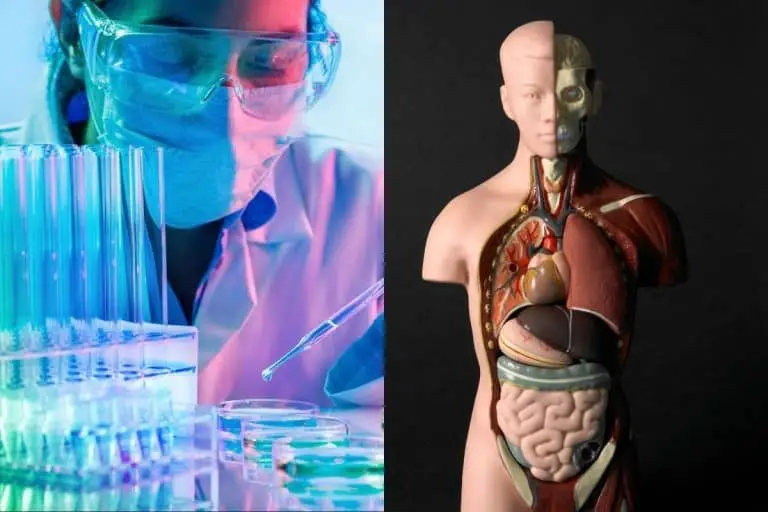How Much Do Grades Matter in College?
The consensus on colleges these days seems to be that colleges and good grades aren’t as important as they used to be. While there’s some truth to this, colleges still hold a lot of importance in many places today. With the public perception undergoing a gradual shift, many college students have begun to wonder just how important their college grades are.
Grades matter in college a great deal. Despite insistence that they’re no longer necessary, it’s a key requirement if you plan to get a job when you leave college. Having good grades will streamline an extremely competitive process and make your applications stand out.
Admittedly there’s some nuance to the matter as the internet and continued advancements in technology have made college less important than it used to be. However, they still hold quite a lot of value, and the remainder of this article will go into detail on why they’re so important and explain why not having good grades isn’t the end of the world.

Why Are Grades Important?
It’s important to understand why your grades in college are so important. Understanding this will give you a clear goal and significantly more motivation to make the best of your time in college.
Grades are important because they help you in your chosen career. Coming out with good grades is worth far more than just the degree you earn. It’ll make the time you spend searching for a job far easier and equip you with the necessary skills to make good progress in life.
There are quite a few reasons why having good grades is important. Although many narrow it down to simply coming out of school with the best possible grades, it’s far more than that (source).
Let’s look at some reasons why having good grades is important.
They Reflect the Information You Retained
Before anything else, your grades are usually a reflection of how well you understand the subject matter. While they’re not always a direct indication of how smart you are, they do a good job of showing that you understand what you’ve been taught.
Consequently, bad grades usually mean that you don’t understand the subject matter very well. If your course is important to you as a potential future career, then this is something that you need to fix.
Although you’ll eventually train more and get hands-on experience, properly understanding the basics as they’re taught in school will make it far easier.
Furthermore, understanding the subject matter in your courses makes you significantly more well-rounded. Good grades are significant as it gives you proper understanding in many areas and can potentially open up links between different subjects that you wouldn’t have known otherwise.
For example, having a better understanding of calculus in math will make your progress through some technical physics courses better. Physics functions on many calculus equations, so understanding the basics of it will make understanding a lot of physics theories, their proof, and the questions under them a lot easier.
That said, bad grades don’t always indicate that you don’t understand the subjects you’re being taught.
Many other things like life problems, exam anxiety, and even bad professors can all go into you not performing as well as you should. A good thing about this is that you can solve most of these problems with some time and effort.
They Help You Get the Right Jobs
There are two main ways that good grades help you land good jobs.
The first is that good grades always make your application stand out from people who don’t have similar grades. Coming out of school with good grades is a relatively good indicator that you have a decent understanding of what you’ve been taught.
This approach isn’t faultless, and it’s possible to come out with good grades while barely understanding the underlying principles beyond what you need to pass. To bypass this problem, many companies will give further tests to narrow down the pool of people they want to hire even more.
However, before even getting to this point, most companies will first use your grades to decide who to cut out and keep.
As a result, having good grades could immediately move you to the next hiring stage.
The second way good grades help you get jobs is to show a level of dedication that is hard to replicate. If you can’t stick with a 4-year program, then you definitely will have problems staying 5 or 6 years at the same company (source).
Better Job and Scholarship Opportunities
Opportunities come and go every day.
Missing the wrong opportunity could potentially derail your career and leave you stranded. The best thing is to meet opportunities with preparation, and many opportunities require your grades to be good.
These opportunities can come in many forms, but one major example is scholarships. Most scholarships are highly sought after, with the most prestigious ones being very hard to get into. However, each scholarship is an opportunity to make a dent in those pesky student loans or even pay them off entirely.
The catch here is that most scholarships consider grades before anything else.
While a few other things might come into play, your grades are usually the most important factor, and having bad grades might immediately disqualify you from a potentially life-changing opportunity.
Further Study
Having good grades is very important if you plan to go the academic route after college and get a master’s degree or a Ph.D. Many masters or doctorate programs might completely dismiss everyone below a certain Grade Point Average (GPA).
As a result, getting good grades will make your search for further study a lot easier than it would be otherwise. That said, it’s not completely impossible to get into a degree program if you do not have the best grades. It’s just more difficult.
What To Do if You Don’t Have Good Grades
If you don’t currently have good grades, you can either work on improving them if you still can or plan ahead to make sure your post-college life isn’t hindered by your grades. Depending on which path you choose, there are a few things you can consider trying.
Study Smarter and More Often
If you’re still in school and it’s possible to fix your grades, then the best thing you can do for yourself is to try and fix them. The most straightforward way is to study.
But, studying smart is equally as important as studying hard.
Consequently, figuring out what works for you is extremely important. While sitting down and staring at the course text for hours works for some people, it might not work for you. Some people are visual learners and need to see what’s been taught either through videos or pictures. Others learn best when taught by another person, so being present at every lecture works for them. Different things work for different people, and you’ll need to find your strength.
Furthermore, studying well goes beyond the actual act of studying.
If you hope to boost your grades, then making your life more conducive for studying is equally important as actually studying. To do this, you’ll need to develop a good life-study balance. You must learn to cut out specific times to study and stick to them.
Doing this will make sure that you study for a specific amount of time a day and also that you don’t burn out from studying for too long at a stretch.
See How To Keep Track of College Homework (10 Methods).
Switch Courses
If your grades aren’t very good and the reason is due to a lack of interest in the course you’re studying, then a good choice could be to change the course entirely. Many people get pigeonholed by parents, friends, and societal expectations to study a particular course regardless of their aptitude for it.
However, just because you started this way doesn’t mean you have to end it the same way.
If you’re stuck in a course you feel unhappy in, the best thing to do is choose one that you’re satisfied with. Interest can sometimes play a large part in how well you do in college, and studying something that excites you can be the difference between graduating with honors and barely scraping by.
Changing from one course to another is different for each college. However, this information is usually easily available from the school’s website, counselors, and other students that have gone through it.
Looking at switching your entire major? See 10 Things That Happen When You Switch Majors.
Start Some Extracurriculars
If your grades are flailing and you need something that’ll boost your resume, then picking up a few extracurriculars can make a big difference. Along with good grades, some employers also prefer people who have either a wide range of extracurriculars or a very well-done extracurricular activity.
These activities can be anything from sports to community service.
The important thing is to do it well. Extracurriculars show your employers that you’re willing to take the initiative and seek out experiences that’ll help you without being forced to.
Along with this, they can also be a great way to learn skills that you wouldn’t have otherwise. For example, getting involved in a sports team in college could show your future employers that you can work as part of a group.
Regardless, try not to overload yourself with extracurriculars, as having too many might be worse than having none at all. Pick enough that it keeps you busy but not so much that you don’t have time for anything else. See 10 Reasons Why College Makes You So Stressed.
Try Your Hand at Freelancing
If you’re at a point where you feel like your grades are too far gone to save, or you’re done with college and can’t find employment, then freelancing could be a life-saver. With the internet being as big as it is and remote work becoming increasingly popular during a global pandemic, freelancing is more lucrative than ever.
There’s a wide range of jobs you can apply for, with many requiring nothing more than a high-school diploma (source).
While a lot of them require a specific set of skills and abilities, many others need nothing more than the ability and willingness to work and meet deadlines. If you’d like to get involved, then the Phil Ebiner Freelance Kickstart blueprint (link to Amazon) is a great way to learn the ropes.
Apply for a Second or Master’s Degree
Depending on your situation, getting a separate or master’s degree could be a wonderful option and could put you right back in the job market with better qualifications. Many people perform far better on their second degree than they do their first (source).
Having gone through it once already, juggling life and college could be way easier the second time around.
Furthermore, finishing a master’s degree well can sometimes overshadow a bad bachelor’s degree and make you more employable. Of course, the problem is getting into a master’s degree with a bad first degree in the first place.
The good thing here is that as times have changed, acceptance requirements have also changed. While it’ll still be difficult to get into one, it’s far easier than it used to be as colleges will consider other things along with your grades (source).
Start an Apprenticeship
Applying for an apprenticeship is a great way to gain hands-on experience at a job without necessarily needing good grades.
Apprenticeships have become more common as more young people seek alternatives to the conventional college route. While they’re not as prestigious as many colleges, apprenticeships can give you the kind of hands-on experience you need to boost your resume when applying for a job.
Another great plus for apprenticeships is that quite a few of them are paid and will keep you on after you complete the program. This allowance provides a steady income source while studying and some level of job security as long as you can perform well.
Note: Although it might seem that way when you’re in the moment, having poor grades isn’t a measure of who you are as a person, and you shouldn’t look at it as such.
While good grades are important to many employers, not having them isn’t a death knell for your career as there are many other options to consider (source).
Final Thoughts
Your grades in college are extremely important. There are many other things you can do aside from college that’ll earn you a decent living, but if you’re in college already, you should do your best to finish with the best grades you can.
That said, having bad grades isn’t the end of the world. There are many options to choose from to boost your resume when applying for jobs or to replace your college degree entirely.
Recommended Reading:







